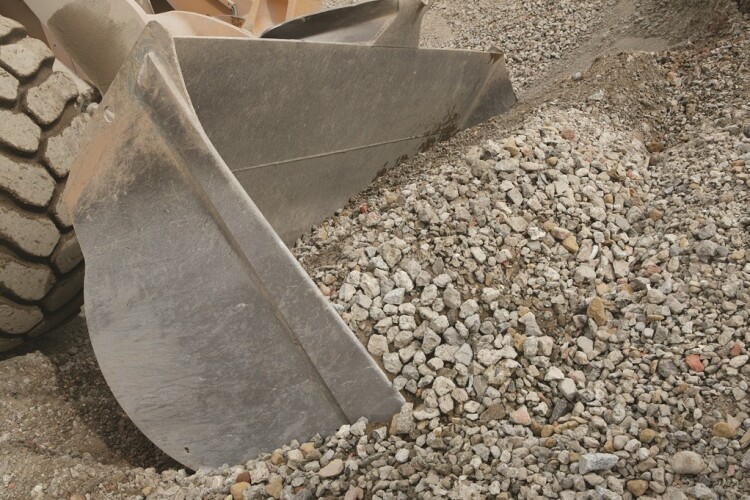According to the Mineral Products Association (MPA), the total volume of recycled and secondary materials processed in Britain reached a record 73.5 million tonnes in 2022.
A new report from the MPA, which represents firms supplying more than 90% of Britain’s aggregates, claims that aggregate recycling rates are higher in Britain than any other major European country.
Processing includes crushing, segregating (removing metals, plastics, etc), washing and screening, and blending to create materials that meet technical specifications.
Its report, Construction Aggregates Supply in Great Britain: Primary, Recycled and Secondary Aggregates in 2022, shows that non-primary materials accounted for more than 30% of the country’s total demand for aggregates (which stood at 241.8 million tonnes in 2022, the biggest flow of materials in the economy).
Breaking the figures down further, the report says 60.3 million tonnes of recycled aggregates came from the recovery of construction, demolition and excavation wastes (CDEW) such as concrete and brick rubble, old rail ballast and earthworks spoil. It also shows that 5.8 million tonnes of asphalt planings were processed for reuse in roads in 2022.
In addition, the increasingly role played by industrial by-products like china clay waste and incinerator bottom ash (IBA) to make secondary aggregates is also highlighted, with 7.4 million tonnes of these materials produced in Britain in 2022.
However, the report also highlights the challenges in tracking progress due to the lack of comprehensive national statistics. Recognising this, the MPA is seeking to lead efforts to address the data gaps to better inform policymaking. The proposed introduction of a mandatory UK-wide digital waste tracking system in 2025 should also help enhance the availability and quality of the data related to construction and demolition waste, the MPA says.

Despite the record recycling figures, the report also demonstrates the significance of primary aggregates (newly quarried or marine dredged), which still account for 70% of the country’s aggregate demand. However, with permits for extraction becoming harder to get, replenishment rates for these materials are at an all-time low.

Mark Russell, the MPA’s director for planning & mineral resources said: “While the construction industry may well be the country’s largest source of waste, MPA members have become proficient in recovering materials arising from build development and processing them so they can be put back to good use elsewhere in construction. The most efficient way to process and reuse these materials is close to where they are sourced to minimise transport, and the bureaucracy of the planning and permitting system is often a barrier to delivering the most efficient solutions.
“That said, there are major investments taking place to improve the quality and availability of recycled and secondary materials, giving developers and contractors the confidence to specify them. Even the small amount of soft inert waste that cannot be turned into aggregate is put to good use in quarry restoration and land remediation. Nothing is wasted!”
MPA director of economic affairs Aurelie Delannoy, who wrote the report, said: “The substantial contribution of recycled and secondary aggregates to total supply is a huge but largely hidden success story for the industry. Aggregates producers have been recycling suitable construction and demolition waste for years to meet our construction needs as efficiently and sustainably as possible, whilst meeting stringent technical standards.
“As we look ahead, further progress in recycling can be anticipated, supported by the major investments that have recently taken place in the extractive sector. However, it is important to recognise that the availability of recycled aggregates is inherently tied to demolition activity and the availability of suitable waste materials. With increasing demands to achieve climate neutrality by 2050 and address key infrastructure and housing needs, primary aggregates extraction will remain essential for meeting the majority of demand over the long term.”
Got a story? Email news@theconstructionindex.co.uk



